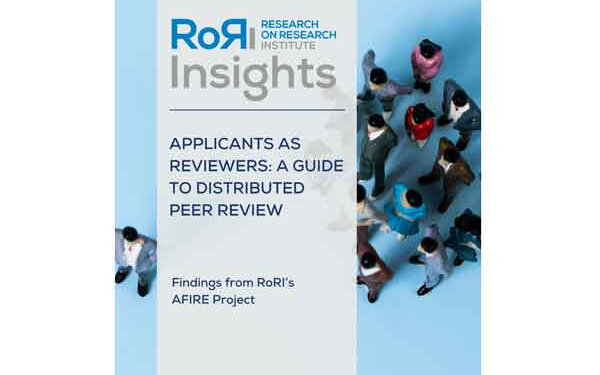Guide for Funders Looking into Distributed Peer Review

RoRI
The Volkswagen Foundation has been experimenting with "Distributed Peer Review" since 2024. The RoRI is evaluating the experiment, in which applicants review each other's applications. One result of the collaboration is a DPR guideline, which the RoRI has now presented.
The insights guide – Applicants as reviewers: a guide to distributed peer review by the Research on Research Institut (RoRI) offers practical advice for funders interested in experimenting with distributed peer review (DPR).
What is DPR?
Distributed Peer Review is a model in which applicants to a funding call also serve as reviewers for that call. Each applicant is required to review proposals from other applicants, creating a scalable, reciprocal system of assessment.
Why DPR?
DPR has the potential to create a review system that is faster, more scalable, and fairer than traditional panel-based peer review.
The concept DPR is not new, but gaining momentum, with trials and adoption by major funders alongside the Volkswagen Foundation, including the National Science Foundation (NSF), the Dutch Research Council (NWO), the European Southern Observatory (ESO), and UK Research and Innovation (UKRI).
This guide, developed through the RoRI AFIRE programme, brings together lessons from funders who have trialed DPR, offering:
- a clear checklist for implementing DPR
- guidance on evaluation, feedback, and platform setup
- an overview of how DPR differs from conventional review processes, with advice on navigating risks and challenges
The Insights Report is aimed at any funder thinking about DPR for the first time or looking to refine their current approach. The guide also includes contact details for peer learning with funders who have already trialled the model.
The guide grew out of the Volkswagen Foundation’s decision to trial Distributed Peer Review in the 2024 round of the call Open Up – New Research Spaces for the Humanities and Cultural Studies and to fund rigorous evaluation of this trial by researchers from RoRI.



